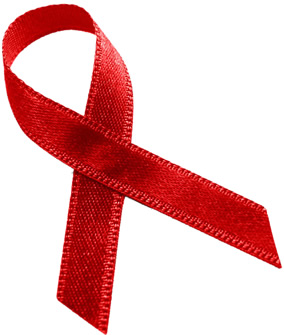 Thousands of activists, researchers and leaders in the global AIDS response descended on Washington last week for the 19th International AIDS Conference with a renewed sense of hope that we finally have the tools to change the course of this epidemic. With recent scientific breakthroughs in both HIV prevention and treatment, we have an unprecedented opportunity to really turn this thing around.
Thousands of activists, researchers and leaders in the global AIDS response descended on Washington last week for the 19th International AIDS Conference with a renewed sense of hope that we finally have the tools to change the course of this epidemic. With recent scientific breakthroughs in both HIV prevention and treatment, we have an unprecedented opportunity to really turn this thing around.
The optimism is due in part to recent discoveries that those treated with the latest anti-retroviral drug regimens have a dramatically reduced risk of passing HIV on to their partners. We now know that combination prevention works by taking traditional behavioral strategies such as risk-reduction counseling, condom usage, needle exchange and HIV testing, and integrating them with the new biomedical interventions such as pre- and post-exposure prophylaxis, and for certain countries in eastern and southern Africa, voluntary medical male circumcision, while at the same time treating all HIV patients aggressively. But we don’t know how to make these developments count in Virginia.
Having the tools and having the will and muscle to put them into practice are two different things. Just look at the numbers here in Virginia. Roughly 4,500 persons in Virginia do not know they are infected with the virus, and 50 percent of all those living with HIV are not receiving care and treatment. Given what we now understand about the importance of early treatment and the role it plays in slowing down transmission of the virus, this is very bad news.
To understand why things in Virginia are so grim you first have to look at the driving factors that fuel the epidemic in our state — poverty, racism, social and economic disparities, stigma, complacency, homophobia and lack of access to health care.
Gay men and African-American women are the two populations most at risk for, and affected by, HIV and AIDS in Virginia. Four out of five people living with HIV are men, and three out of five people living with HIV are black, according to the Virginia Department of Health. Infant mortality — one of the most striking indicators of a lack of access to health education and quality health care — is unfortunately a tragedy too close to home in Virginia. Children born to black women in Charlottesville and Albemarle County, for example, have more than double the infant mortality rates compared with those born to white women . Gay people in Virginia have yet to be granted full marriage rights, are banned from giving blood, and have been discriminated against even at the highest levels of our state judicial system.
Research shows that while most Americans understand how HIV is transmitted, fear and discrimination continue to stand in the way of progress against the disease. Basically, here in Virginia we live in a high-risk environment for HIV. Add to that the less than adequate job that our schools are doing in educating teens about sex and HIV prevention, and it’s a recipe for disaster.
The dream of an “AIDS-free generation” is finally within our reach. That was undoubtedly the resounding message of the AIDS 2012 conference. But to realize this dream here in Virginia we will need to reduce the barriers to preventing and treating AIDS that are caused by economic disempowerment, discrimination and stigma.
We need to ensure that no matter the color of your skin or your sexual orientation, you have access to high-quality medical care and can feel comfortable and empowered in your community.
We need to make Charlottesville a place where any primary care doctor will accept people living with HIV — a far cry from where we are now.
We will need to build a more supportive environment and community in which children are given lifesaving information about their own sexual health, in which people can feel comfortable getting tested for HIV and sharing their results with others without fear of rejection.
Having worked in the field of international HIV/AIDS prevention for the past 20 years, primarily in Africa, I’m ashamed to say I’ve only recently come to understand what’s going on in my own backyard. I have the privilege of serving on the board of the AIDS/HIV Services Group here in Charlottesville, which has been an eye-opener. ASG provides care coordination; supportive housing; mental health, substance abuse and psychosocial support, and other programs to people in the community living with, affected by, or at risk of HIV or AIDS. ASG is the sole provider of HIV-related services in an 11-county area, with some clients travelling long distances just to find a place where they can get an HIV test or talk about their HIV status in a supportive environment. But ASG can’t do it all alone.
Taken from: http://www2.dailyprogress.com/

